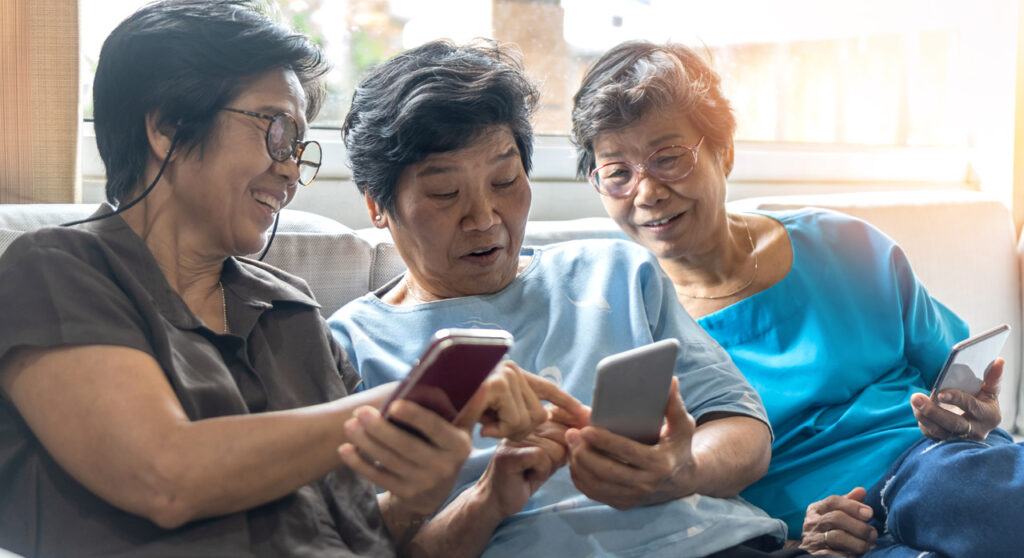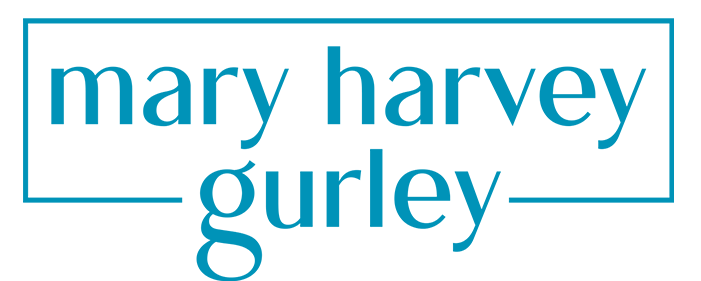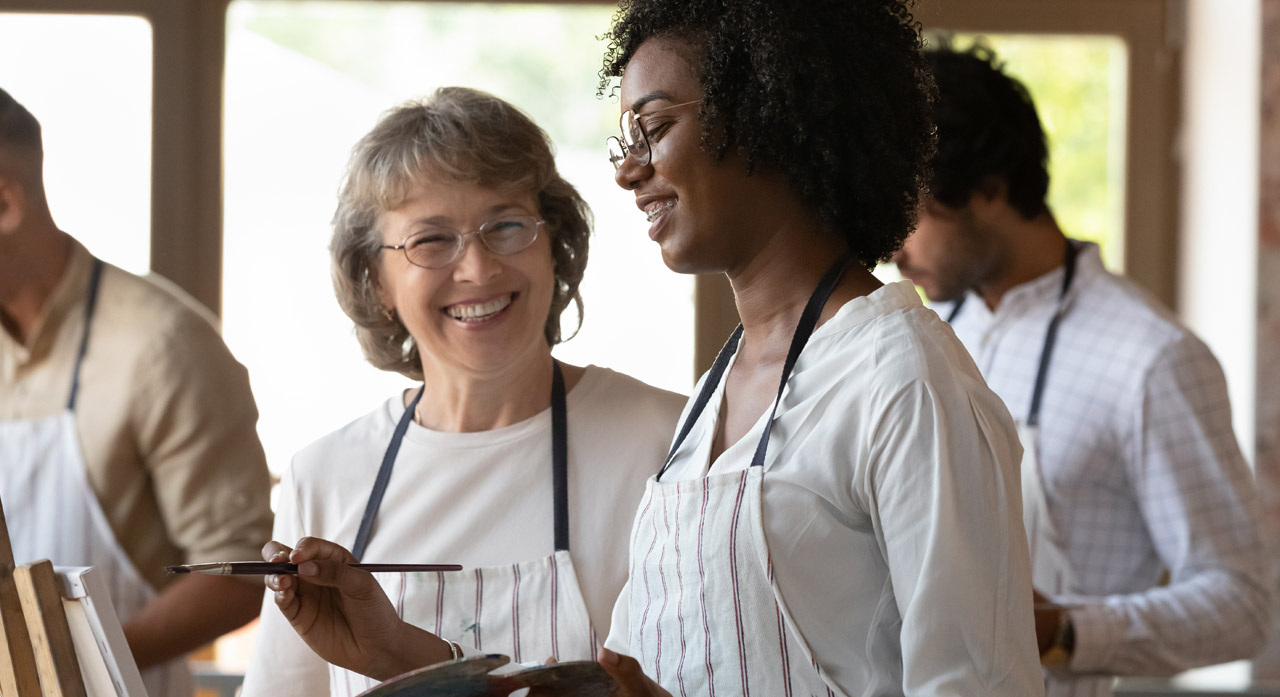Why Lifelong Learning is Important
I have a range of interests: photography, art, cooking, writing, and gardening. Okay, I may have too many interests! Out of all these, there’s one thing I’m genuinely passionate about – constantly learning things.
Having seen my parents struggle with dementia and Alzheimer’s, I understand how crucial it is to keep our brains active. While research has provided insights into these diseases, engaging in activities stimulating our minds to reduce the risk remains vital. These activities include exercising, taking multivitamins, and keeping ourselves engaged.
During my thirties, I committed to learning four skills each year. My classes have been diverse – from jewelry making and oil painting to photo encaustic painting and belly dancing. Additionally, I’ve delved into photography classes, mastered computer programs, tried my hand at pottery making and acrylic painting, experimented with watercolors, and even explored weaving and knitting. Moreover, I’ve completed all the coursework toward a master’s degree in spirituality. Recently, I’ve taken up Mah Jong as my endeavor while also studying the Spanish language after successfully passing my French fluency exams during college.

I started working part-time at my cousin’s landscape nursery and home center. It was the time in my life when I got to operate a cash register. http://millstonenursery.com
So, what’s on my learning list for 2024? I want to become skilled at playing mahjong and enhance my computer skills, such as photo editing, AI, and website management. Additionally, I’m interested in getting back to pickleball and exploring ham radio.
Learning allows me to engage with others and develop my skills, which becomes increasingly important as I age. Much of my life is spent alone: writing, photography, editing, and painting. Therefore, I seek activities that get me out of the house and allow me to interact with people. These new skills must involve something that engages my hands while providing challenges and artistic expression.
Most of the things I’ve learned so far have been through classes, workshops, and participating in various online challenges. Some instructors offer these challenges where you can learn something in just five days. The cost is usually free or under $20. They will try to sell you extensive programs afterward; however, these challenges can be an enjoyable way to acquire new knowledge. I like to take a variety of them, which probably led Facebook algorithms to label me as someone who loves courses since I receive ads promoting new classes.
One of the challenges I look forward to every year is the Colette Baron Reids vision board challenge in January. https://www.colettebaronreid.com It’s an opportunity to plan and set goals for the year.
We live in a time where we can learn any skill using our phones, laptops, or notebooks. The traditional boundaries of classrooms or workshops no longer confine us. We can explore subjects at our own pace right from the comfort of our homes through online platforms.
Lifelong learning goes beyond acquiring skills for purposes; it’s about nourishing our spirit, personal growth, and self-expression. It’s a journey that shapes us and creates ripples of change as we navigate life’s shifts.
It is crucial to set goals and prioritize self-improvement by avoiding distractions. Embracing the world around us can enrich our learning experiences. Consider becoming part of a learning community where you can connect with individuals who share your passion for expanding knowledge and honing skills.
Being a part of a community offers you support, motivation, and opportunities for collaboration and networking. Remember that lifelong learning doesn’t have to be dull! Incorporate social activities, like joining book clubs or language exchange groups, into your routine to make it more enjoyable. Not will you enhance your skills? You’ll also forge meaningful connections along the way.
Moreover, consider volunteering for hands-on experiences as they provide growth opportunities in your learning journey. So, are you ready to embark on a learning adventure? Remember that there’s always time to start and no limit to what you can learn. The possibilities are endless – all it takes is a leap of faith.
Here are some tips for learning some new things:
- What things did you want to know when you were younger? Did you secretly want to be an artist? What are some things you always wanted to try? Do some research, find a subject, and set learning goals.
- Allocate dedicated time every day or week for learning
Check out a book at the library about a topic that interests you. Set a time every day that you will read the book, gather supplies, and begin. - Find an environment for learning.
Our city has a great library and community center that offers a variety of classes. - Use online resources
Explore courses offered by platforms like Coursera, Creative Live, and Udemy. YouTube is another excellent source —there are so many! - Engage with community-based organizations focused on learning and benefitting from learners’ experiences.
As I mentioned, my community has many offerings. Other places to look for classes are your local university, museums, garden centers, senior services, and local interest groups at your botanic garden. - Keep things interesting by trying out different learning methods
Try an online class, AND THEN try an in-person workshop. This will help prevent boredom and keep you engaged. - Take some time to reflect on what you’ve learned.
Reflecting on your knowledge does not help improve understanding. It also boosts memory retention. Journaling about your new love of learning might be a good idea. - Get your friends or family involved in your learning journey
My family always wonders what I will be up to next! Consider teaching others what you’ve learned; it strengthens and deepens their understanding. - Consider volunteering in areas that interest you
This will provide hands-on experience. Allow you to explore subjects that capture your curiosity further. - Stay current by attending lectures, seminars, or workshops
Investigate what opportunities for learning are available in your community.
Continuously expanding your knowledge through these events ensures you remain informed and well-rounded.

